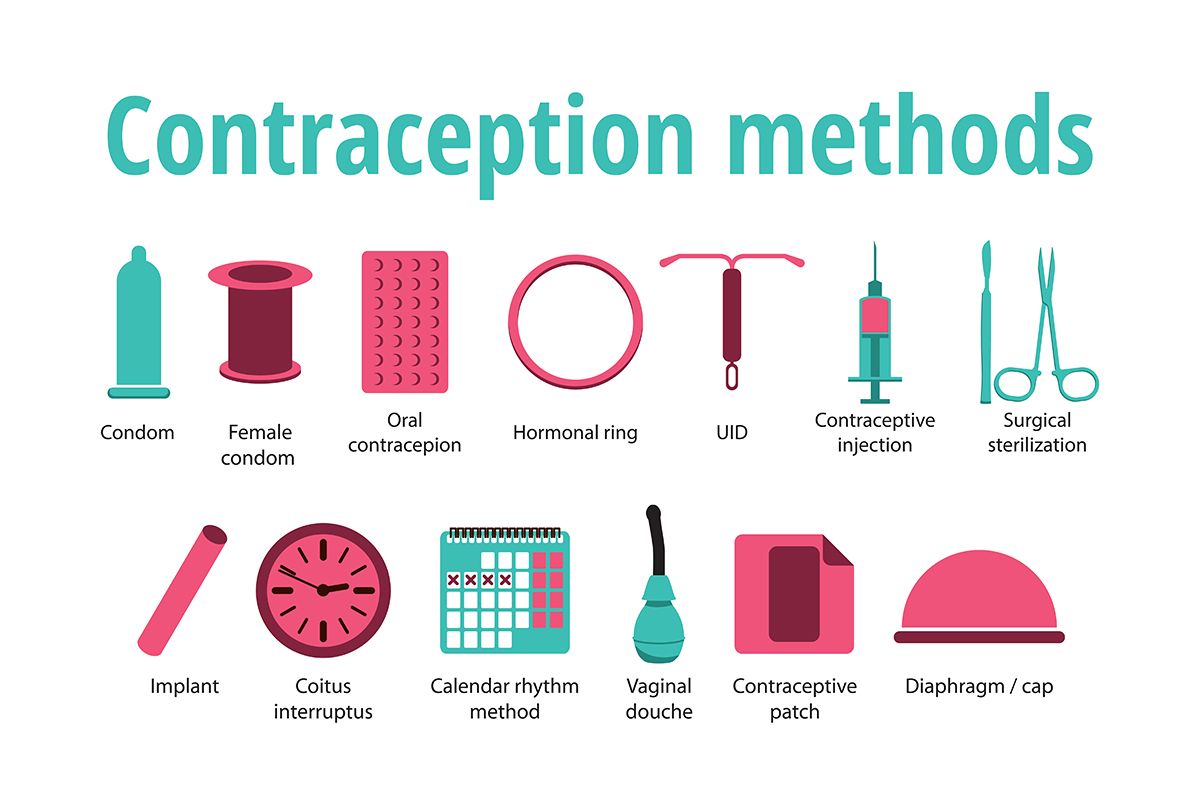If you do not want to conceive, numerous birth control methods are available today that can help prevent pregnancy. Read on to know some of the pros and cons of the popular birth control methods to help you make your choice of a method. To compare the choices, it is necessary to know about the effects of the same.

Which contraceptive method to choose?
When it comes to your personal life, you only have to decide what’s best for you. It is important then to choose contraception methods that suit your situations and lifestyle. In this article, you will get information about how to protect you and your partner from having an unplanned pregnancy. You will also get a brief description of the methods available. Read it and then discuss with your health physician and your partner what is suitable for you.
Think about contraceptive methods before you think to indulge in sexual activity. All the birth control methods are effective, and most give 99% protection against unwanted pregnancy if they are used correctly and consistently. Note that only abstaining from all sexual contacts provides 100% protection against unplanned pregnancy.
There are several things that need to be considered while choosing which method of birth control is appropriate for you. You can talk to your doctor to know more about the methods that you have selected. Different birth control methods suit different people. Therefore, it is important to discuss your contraceptive choices with your physician. You may also need to experiment to determine the right choice for you. While all the birth control methods help to avoid pregnancy, there are some that help prevents the spread of sexually transmitted diseases as well.
Here are some common types of birth control:
- Abstinence
This is, of course, the most effective birth control option. It means that you refrain from vaginal intercourse.
Pros
- It is a sure way to avoid pregnancy
- It helps avoid sexually transmitted infections
Cons
- This method may be difficult for some couples to continue for a long time
- Knowing your time of ovulation
This kind of birth control involves paying heed to the changes in the body that hint that ovulation will take place soon, and to avoid sex in that timeframe.
Pros
- You don’t have to use a physical barrier before sex
- No need for birth control medications
Cons
Needs the couple to be very careful and have a good understanding of the body
Risk of failure is there
- Barriers
Physical barriers are one of the most convenient birth control ways that act as an obstruction to prevent sperms from reaching the eggs. Some of the options are:
Condoms – It is a thin tube made of latex or some other material. It is generally widely available at pharmacies, health clinics, and other stores. Condoms are used to cover the penis and collect the sperm after ejaculation. Female condoms are also used where a woman inserts it in the vagina before the intercourse. One condom can be used only once.
Sponges – These are small rounds of foam that are inserted before sex. One sponge can be used only once
Diaphragm – It is a latex dome that is inserted into the vagina. Your doctor will do it for you and it can be left there for some period of time. The diaphragm can be cleaned and reused.
Cervical caps – These plastic or latex domes are fitted over your cervix by your doctor. They need to be replaced every year.
Doctors generally advise using the barrier methods in combination with spermicidal, which is a gel to kill sperms for more effective results.
Pros
- They can help prevent sexually transmitted diseases
Cons
- If the condoms are ruptured, you are at a risk of getting pregnant
- Some options such as cervical caps and sponges cannot be used during menstrual cycle
Also Read: Unexplained Story of Stem Cells
- Birth control pills
They are one of the most convenient birth control methods. They are basically hormone combinations that help avoid ovulation. There are many different formulas available in the market today. You can choose the one that works the best for you.
Pros
- A reliable method to prevent pregnancy
- Helps some women avoid unpleasant PMS symptoms
Cons
- There can be side effects such as weight gain, headaches, and nausea
- It does not provide any protection against sexually transmitted infections
- Sterilization
It is one of the common birth control ways. In this method, the egg is prevented from passing to the uterus from the fallopian tubes. In men, a vasectomy is done to help prevent ejaculation of sperms
Pros
- Guaranteed to avoid pregnancy
- Not necessary to use any other birth control method
Cons
- After the surgery, it needs a few days to recover
- Does not provide any protection against sexually transmitted diseases.
Also Read: 4 Simple Ways To Avoid Unwanted Pregnancy
- Implant
It is one of the types of birth control where a plastic rod is placed under the skin and it releases a hormone, progestin. It has an effect on ovulation and thickens the cervical mucus enough to block sperm. It is available at most sexual health clinics.
Pros
- One of the most effective options
- Lasts for up to three years
- It can be removed any time
Cons
- It hampers the menstrual cycle
- It can lead to breast tenderness, weight gain, and acne
- Copper Intrauterine Device (IUD)
These are small T-shaped instruments that your doctor will insert in your uterus. It helps to stop a fertilized egg from implanting in the uterus.
Pros
- It can stay in your uterus for up to 10 years
Cons
- It can cause heavy PMS effects
Since ancient times, people have been using different birth control methods to prevent unwanted pregnancy. Today, there are many safe and effective birth control ways available to us. For those who need birth control, learning about the different methods can make you aware of the available choices and pick the best option.



